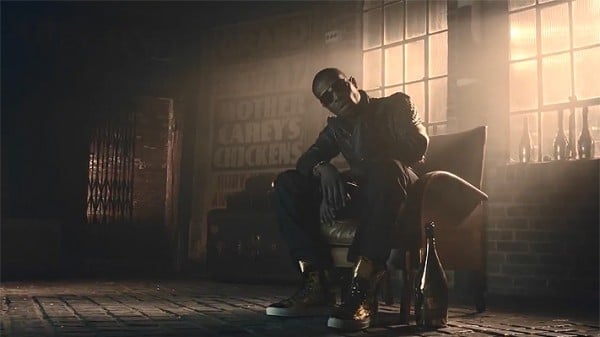Jimmy Adewale Amu, one of the leading DJs in Nigeria, has said D’banj, DKM singer, introduced Nigerian music to the world with his 2012 hit single, “Oliver Twist”.
He praised “Oliver Twist” for opening doors to the international community and piquing the world’s interest in Nigerian music.
“I think ‘Oliver Twist’ pretty much opened a whole lot of doors in terms of Nigerian music.”
“I think it is getting to that point now where people are now appreciating the fact that they need to collaborate with artistes from here as well as against before when it was some desperate move by artistes from here to collaborate with whoever.”
Being one of the pioneers of hip-hop and Dj-ing in Nigeria, Jimmy Jatt gave insight into the inception and evolution of music in Nigeria during an interview with Boiler Room, which was conducted in collaboration with British Council.
STRUGGLED TO BEGIN
“In the beginning, we were just struggling”, said the legendary disc-jockey.
“Nigerians were fond of feeling like, anything Nigerian was local and wasn’t cool, so anything Western is hip. So people weren’t really buying into the Nigerian thing even with the fashion and everything.
“At that time, it wasn’t easy for someone to singlehandedly run a record label, you needed to be signed to major record labels like Premiere music, Sony music, EMI.
“They were pretty much thinking once your music is not Fuji, juju, reggae like Majek Fashek, it wasn’t Nigerian and it wasn’t going to fly but we DJ on the street knew what people wanted to listen to but the big record labels that were around at that time were guilty of not listening to what was going on in the streets.
“There is music meant for different times, it is like opening a supermarket and then having just milk. You should have cheese, butter and bread so people can have varieties.
THE CURSE/BLESSING OF “AFROBEAT”
Jimmy Jatt complained that in Nigeria, every sound is classified as “Afrobeat”, which he says hinders the potential of the Nigerian music industry.
“In as much as appreciate the fact that there is recognition for our music as afrobeat, I still think, sometimes, lumping everyone into one genre isn’t official.”
“I think it is limiting when we start to generalize our music under Afrobeat because under this Afrobeat, you then have people doing dance music, rappers are there and R&B artistes are there. They are all classified as Afrobeat artistes and I think that is not cool.”
“If I am playing hip-hop, it should be hip-hop but by Nigerian artiste. For us not to even limit ourselves within that universal space so that my music can be nominated; if it is R&B, it can be nominated under R&B category in any part of the world as against ‘this is afrobeat’.
“There are reggae artistes here and they still call it afrobeat”, he added.
Copyright 2025 TheCable. All rights reserved. This material, and other digital content on this website, may not be reproduced, published, broadcast, rewritten or redistributed in whole or in part without prior express written permission from TheCable.
Follow us on twitter @Thecablestyle


Very informative blog thanks for sharing your views.